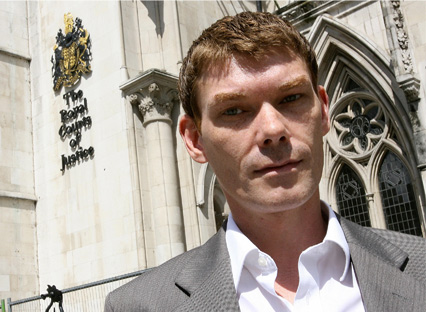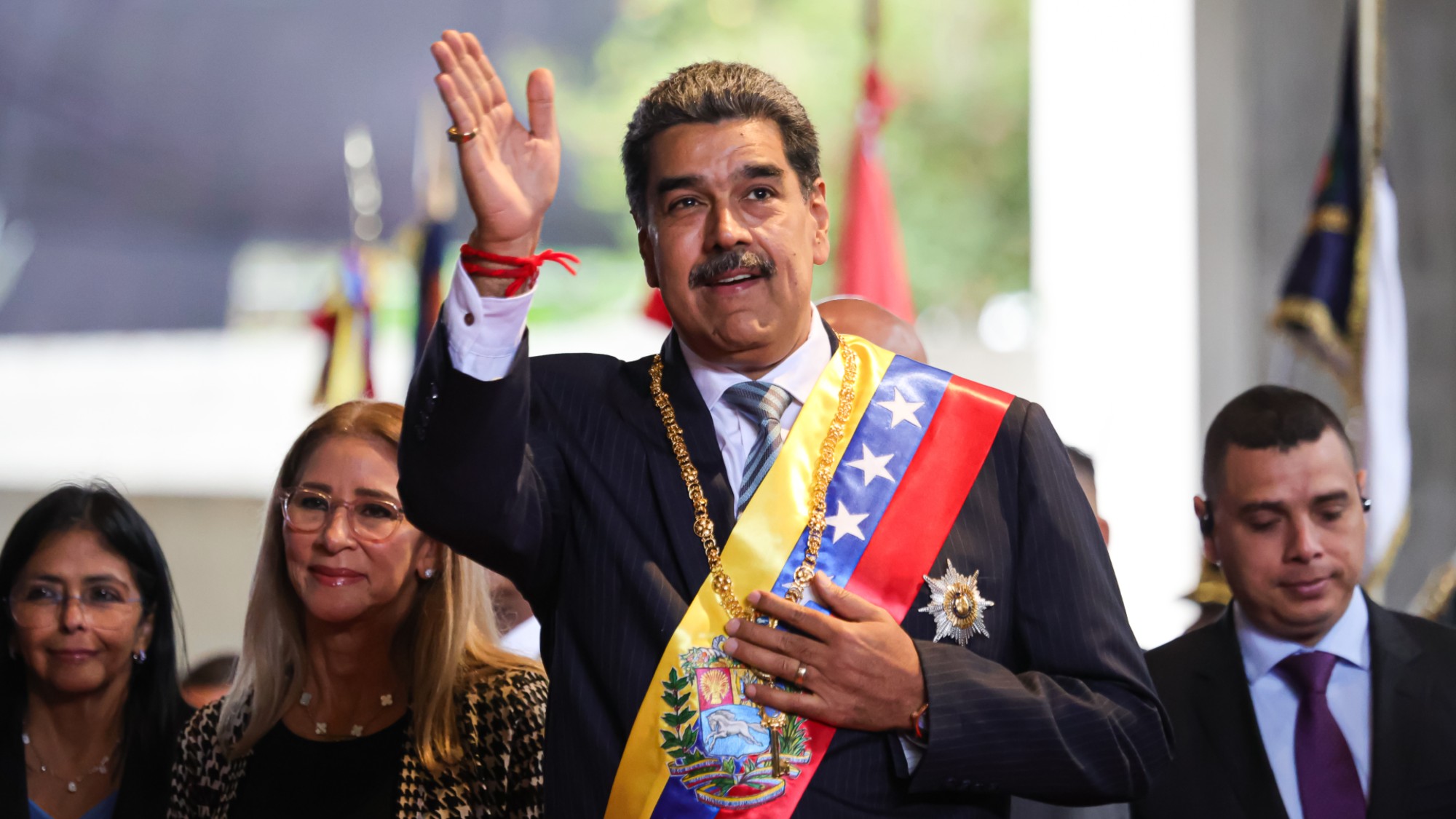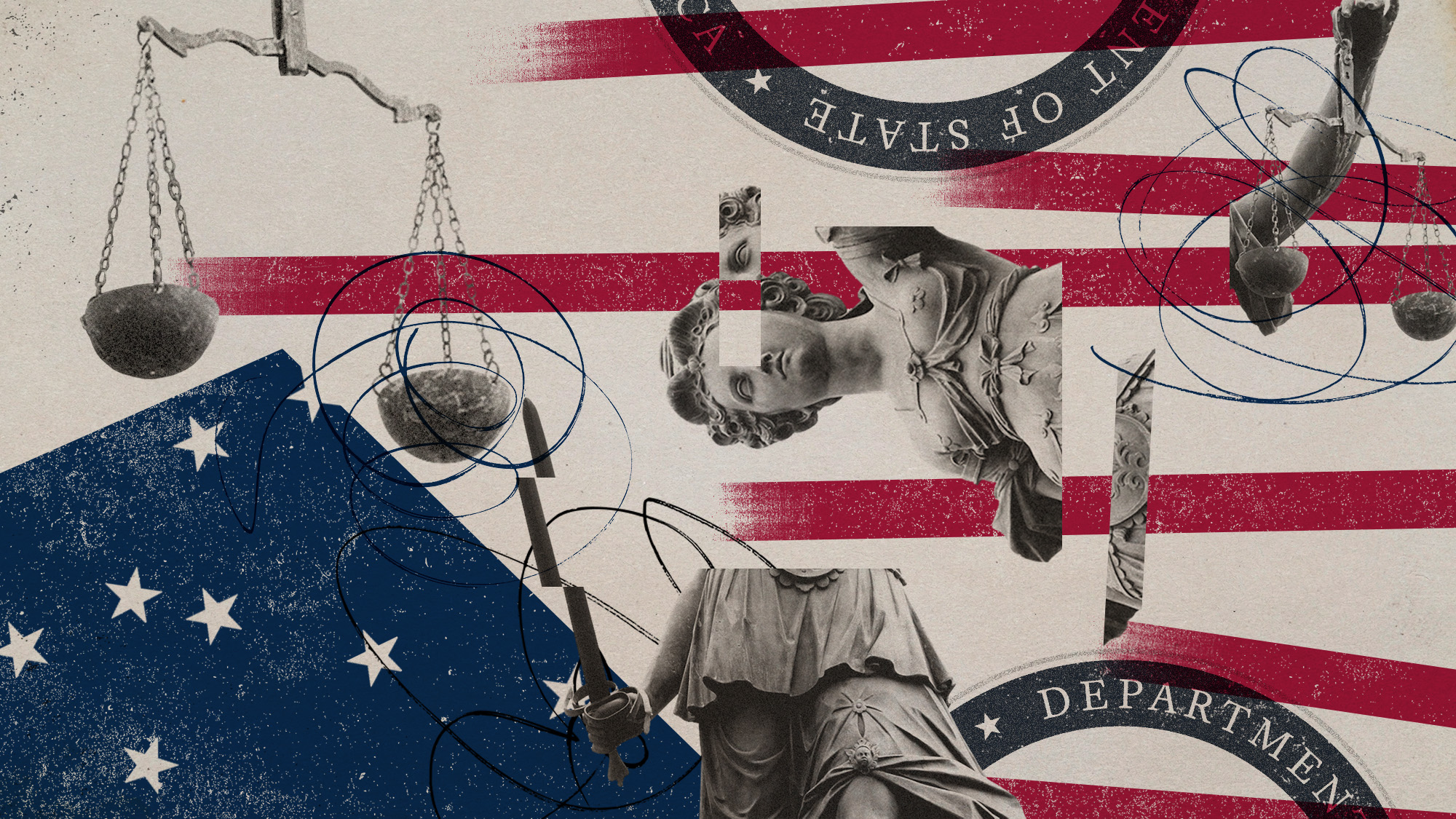McKinnon extradition blocked as May invokes human rights
Hacker Gary McKinnon saved by Theresa May, but why was fellow Asperger's sufferer Talha Ahsan sent to US for trial?

A free daily email with the biggest news stories of the day – and the best features from TheWeek.com
You are now subscribed
Your newsletter sign-up was successful
THERESA MAY has saved computer hacker Gary McKinnon from extradition to the United States. The Home Secretary accepted the advice of psychiatrists who said they could not guarantee that McKinnon, who suffers from Asperger’s Syndrome, would not attempt to commit suicide if handed over for trial.
However, celebrations over McKinnon’s victory have been tainted by accusations of racism, because of last week’s extradition to the US of a British Muslim terrorism suspect who also had Asperger’s.
May told MPs that there is no doubt McKinnon is seriously ill, and there was a high risk that he would attempt suicide if extradited. May added that she had carefully examined the medical evidence and taken legal advice and her conclusion was based solely on McKinnon’s human rights.
The Week
Escape your echo chamber. Get the facts behind the news, plus analysis from multiple perspectives.

Sign up for The Week's Free Newsletters
From our morning news briefing to a weekly Good News Newsletter, get the best of The Week delivered directly to your inbox.
From our morning news briefing to a weekly Good News Newsletter, get the best of The Week delivered directly to your inbox.
May’s announcement was met with cheers in the House of Commons. It will now be up to the Director of Public Prosecutions to decide if McKinnon, who had been fighting extradition since 2006, has charges to answer in a UK court. He admits that he hacked into US military computers, but insists he did so to find evidence of UFOs.
At the same time as revealing her decision on McKinnon, May announced, as expected, a shake-up of Britain's extradition agreement with the US which will mean that, in future, people accused of committing a crime in the UK will be more likely to be tried here.
The 'forum bar' will be implemented despite fierce resistance from the US government. It will mean that a court hearing will have to be held to decide where a suspect should stand trial.
Janis Sharp, McKinnon’s mother spoke of her relief, saying: “Thank you, Theresa May, from the bottom of my heart – I always knew you had the strength and courage to do the right thing.”
A free daily email with the biggest news stories of the day – and the best features from TheWeek.com
Shami Chakrabarti, the director of Liberty said: “Extradition should prevent fugitives escaping – not allow for Britons like Gary to be parcelled off around the world based on allegations of offences committed here at home.“This campaign, led by Gary’s fearless mother, united lawyers, politicians, press and public from across the spectrum in the cause of compassion and common sense.”
Guardian journalist Patrick Wintour suggested that May was more worried about public opinion than any legal arguments., tweeting: “Theresa May (nearly): ‘I have concluded that Mr McKinnon's extradition gave rise to a high risk that I would be demolished by the Daily Mail.’”
While today’s decision has been widely applauded, many have compared McKinnon’s treatment to that of fellow Asperger’s sufferer Talha Ahsan, one of the terrorism suspects extradited to the US last week along with Abu Hamza.
The family of Babar Ahmed, another of the suspects extradited last week, accused May of double standards. “We strongly welcome the decision not to extradite Gary McKinnon - we would not want his family to experience the pain and suffering we have all been enduring since Babar was extradited.
“However, questions do need to be asked as to why, within the space of two weeks, a British citizen with Asperger's accused of computer related activity is not extradited, while two other British citizens, one with Asperger's, engaged in computer related activity are extradited. A clear demonstration of double standards...
“Many of our supporters are angry at what appears to be blatant old-fashioned racism under which all British citizens are equal but some are more equal than others.”
It remains to be seen how the decision will go down in Washington. The BBC's Jane Little says the groundwork had been laid for today's decision, with US policy towards Mr McKinnon "seen to be softening" after President Obama's meeting with David Cameron in 2010 and a comment this summer from government adviser John Arquilla, who said the US should be recruiting elite computer hackers to launch cyber-attacks against terrorists instead of prosecuting them.
However, a foretaste of American reaction was provided by David Rivkin, a former White House counsel to Presidents Reagan and Bush, who told the BBC’s /World at One/ programme that the decision to block extradition was "laughable" and that "under that logic, anybody who claims some kind of physical or mental problem can commit crimes with impunity and get away with it. Because either he would not be prosecuted or extradited".
-
 How the FCC’s ‘equal time’ rule works
How the FCC’s ‘equal time’ rule worksIn the Spotlight The law is at the heart of the Colbert-CBS conflict
-
 What is the endgame in the DHS shutdown?
What is the endgame in the DHS shutdown?Today’s Big Question Democrats want to rein in ICE’s immigration crackdown
-
 ‘Poor time management isn’t just an inconvenience’
‘Poor time management isn’t just an inconvenience’Instant Opinion Opinion, comment and editorials of the day
-
 How corrupt is the UK?
How corrupt is the UK?The Explainer Decline in standards ‘risks becoming a defining feature of our political culture’ as Britain falls to lowest ever score on global index
-
 The high street: Britain’s next political battleground?
The high street: Britain’s next political battleground?In the Spotlight Mass closure of shops and influx of organised crime are fuelling voter anger, and offer an opening for Reform UK
-
 Nicolás Maduro: from bus driver to Venezuela’s president
Nicolás Maduro: from bus driver to Venezuela’s presidentIn the Spotlight Shock capture by US special forces comes after Maduro’s 12-year rule proved that ‘underestimating him was a mistake’
-
 Is a Reform-Tory pact becoming more likely?
Is a Reform-Tory pact becoming more likely?Today’s Big Question Nigel Farage’s party is ahead in the polls but still falls well short of a Commons majority, while Conservatives are still losing MPs to Reform
-
 Taking the low road: why the SNP is still standing strong
Taking the low road: why the SNP is still standing strongTalking Point Party is on track for a fifth consecutive victory in May’s Holyrood election, despite controversies and plummeting support
-
 Why has the State Department scaled down its stance on human rights?
Why has the State Department scaled down its stance on human rights?Today's Big Question The Trump administration has curtailed previous criticisms of human rights violations
-
 What difference will the 'historic' UK-Germany treaty make?
What difference will the 'historic' UK-Germany treaty make?Today's Big Question Europe's two biggest economies sign first treaty since WWII, underscoring 'triangle alliance' with France amid growing Russian threat and US distance
-
 Is the G7 still relevant?
Is the G7 still relevant?Talking Point Donald Trump's early departure cast a shadow over this week's meeting of the world's major democracies